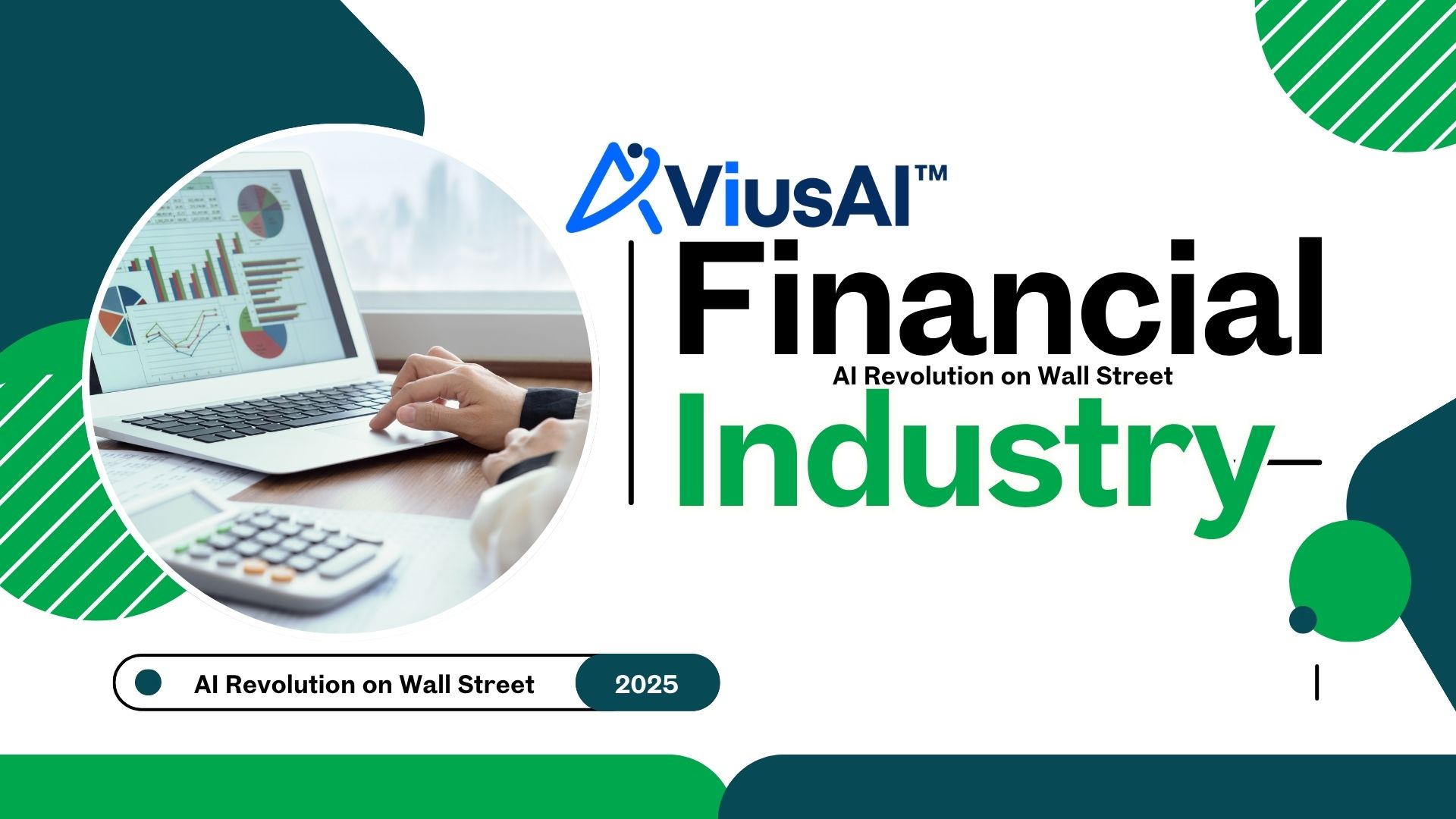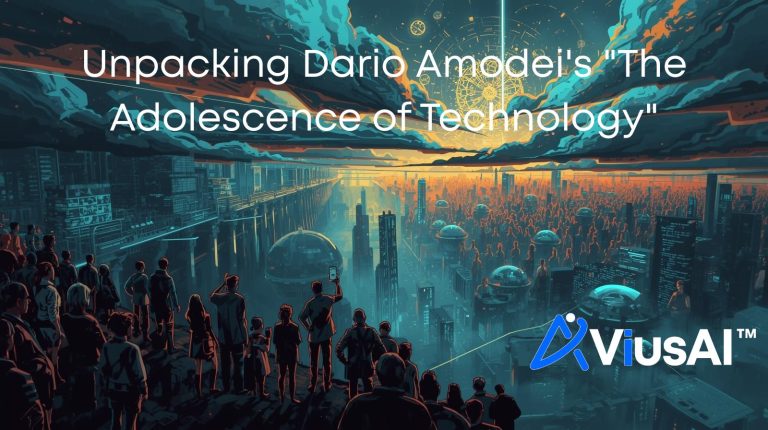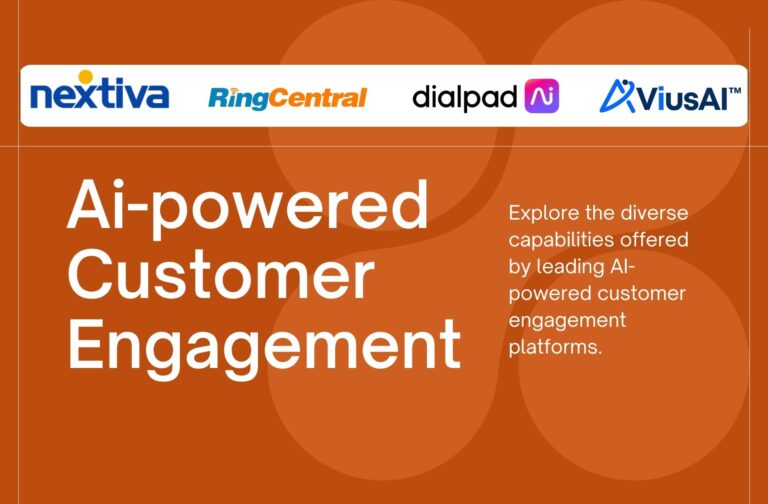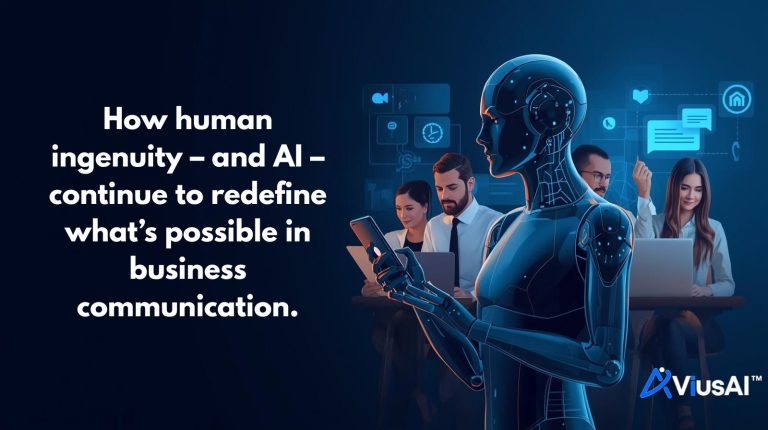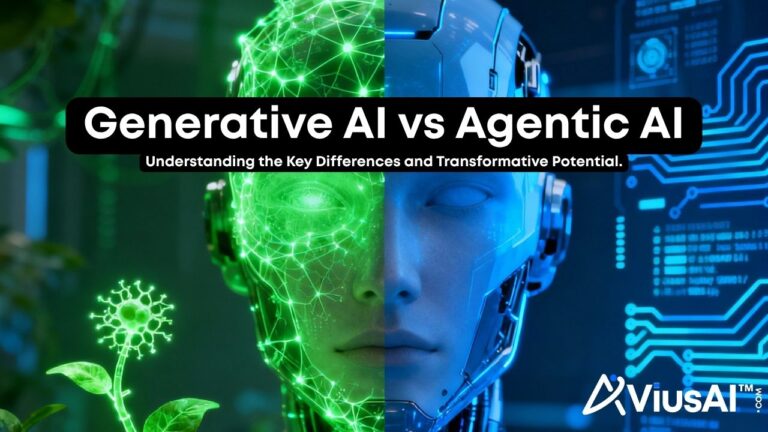The AI Revolution on Wall Street: How Digital Employees and Intelligent Assistants are Reshaping Finance
The traditional bastions of global finance, once perceived as slow-moving giants, are now at the forefront of a profound technological revolution. In an unprecedented surge, Wall Street is embracing disruptive artificial intelligence (AI) technologies faster than almost any other sector in recent years (source).
This is not merely an incremental upgrade; it is a fundamental re-imagination of how work gets done, driven by the emergence of “digital employees” and intelligent assistants poised to redefine the very fabric of the financial industry.
Leading financial institutions like JPMorgan Chase and Goldman Sachs are not just dabbling in AI; they are aggressively integrating generative AI tools into their core operations, envisioning a future where AI is an indispensable part of every employee’s workflow and every client interaction.
This rapid adoption stems from the inherent adeptness of large language models in replicating aspects of human cognition, making them uniquely suited for the knowledge-intensive demands of finance.
The Dawn of the “Digital Employee” at JPMorgan Chase
At JPMorgan Chase, a forward-thinking perspective is shaping their AI strategy. Derek Waldron, the Chief Analytics Officer, introduces the compelling concept of “digital employees” as a model to help business leaders conceptualize AI tools (Source).
While acknowledging that these AI entities are fundamentally different from both human employees and traditional software systems, this framework helps to grasp their potential and requirements, particularly regarding system connectivity and access management – an “open question” that requires case-by-case determination.
JPMorgan Chase’s vision for the future is remarkably ambitious and pervasive: Waldron envisions a future where every employee will be equipped with an AI assistant, and every client experience will be enhanced by an AI concierge.
This isn’t a distant aspiration; significant progress has already been made. A substantial 230,000 employees at JPMorgan Chase currently have access to a general AI chatbot through the company’s proprietary platform.
The strategic imperative extends beyond this foundational access, aiming to develop more autonomous and agentic versions of this AI, progressively tailoring them to individual job groups. This signifies a clear trajectory towards highly specialized, integrated AI partners that move beyond generic assistance, evolving into sophisticated, task-oriented digital colleagues.
Goldman Sachs’ GS AI Assistant: A New Colleague on the Trading Floor
Goldman Sachs is another titan aggressively forging ahead, deploying its own generative AI assistant, the “GS AI assistant,” to its most critical knowledge workers: bankers, traders, and asset managers.
Marco Argenti, Goldman Sachs’ Chief Information Officer, who joined the bank from Amazon in 2019, describes this initiative as the initial phase in an evolution that will eventually lead to an AI embodying the characteristics of a seasoned Goldman employee.
The “GS AI assistant” has already been rolled out to approximately 10,000 employees, with the ambitious target of making it accessible to all knowledge workers within the company this year.
Argenti vividly illustrates the user experience, stating that “The AI assistant becomes really like talking to another GS employee”. Initially, the assistant is designed to streamline tasks such as summarizing or proofreading emails, and translating code between different programming languages.
Argenti highlights its user-friendliness, noting it’s a “very simple interface that allows you to have access to the latest and greatest models”. Goldman’s strategic approach is to harness a variety of leading AI models, drawing upon OpenAI’s ChatGPT, Google’s Gemini, and Meta’s Llama depending on the specific task, while also exploring models from other prominent companies like Anthropic, Mistral, and Cohere7.
This diversified, multi-model strategy underscores a commitment to flexibility and ensuring access to the optimal AI tool for diverse internal needs.
The Evolution of AI: From Assistant to Agent to Reasoner
The journey of AI within these financial powerhouses is not static; it’s envisioned as a dynamic progression through distinct, increasingly sophisticated stages, moving far beyond mere informational retrieval.
Current Capabilities (Stage 1: Assistant):
Today’s generative AI tools are already highly proficient at core tasks such as responding to queries, composing emails, and summarizing lengthy documents. This foundational capability is actively enhancing productivity across a multitude of roles within these firms.
Agentic Behavior (Stage 2: Agent):
The next critical leap in AI development involves the cultivation of “agentic abilities”. This means the AI will be capable of performing multistep tasks with minimal human intervention.
Argenti elaborates on this evolution for the Goldman assistant: “As we progress, the second step is when you’re starting to have this agentic behavior, that is, ‘I’m completing a task on behalf of a Goldman employee, and I need to take a set of steps”. Crucially, at this stage, “the model is going to start to do things like a Goldman employee, not only say things like a Goldman employee”. This represents a profound shift from simply providing information to actively executing complex, multi-faceted processes.
This concept of “Agentic AI” aligns perfectly with Avius AI’s definition of the “3rd wave of AI development,” stating that Agentic AI “not only understands and predicts, it makes decisions (autonomy)” (Source).
Avius AI further clarifies that Agentic AI systems “understand, perceive, and reason (about the world), not just simply process data or follow rules,” and can “explain its decisions, adapt contextually, and integrate information from multiple sources for nuanced understanding”.
This comprehensive definition perfectly captures the strategic direction of Goldman Sachs’ second stage of AI evolution, where the AI moves from merely responding to queries to actively performing complex, decision-driven tasks.
Human-like Reasoning (Stage 3: Reasoner):
The most exciting and transformative prospect, according to Argenti, is anticipated three to five years into the future. This advanced stage will see AI models increasingly blurring the lines between human and machine thinking.
The ultimate vision is for the AI model to “actually reason more and become more like the way a Goldman employee would think”. Instead of merely adhering to a predefined “run book”—a set of step-by-step instructions—the AI would possess the capability to generate detailed plans “in the way that an experienced Goldman employee would do”.
This elevated level of intelligence would empower the AI to anticipate needs, strategize, and adapt in dynamic ways previously reserved for highly experienced human professionals, embodying the true essence of a “reasoner.”
This aligns with Avius AI’s description of Wave 3 Agentic AI, which is “able to reason” and further anticipates a 4th wave expanding autonomous action and a 5th wave introducing creativity (Source).
Crafting the Firm’s AI Identity: The “Goldman Way”
A pivotal reason why major firms like Goldman Sachs and JPMorgan Chase are forbidding employees from using public ChatGPT for work and instead developing their own proprietary platforms is the critical need to embed the firm’s unique identity into the AI itself.
This strategic decision serves a dual, equally vital purpose: firstly, it ensures the security of sensitive, proprietary information, preventing it from being inadvertently absorbed into public models.
Secondly, and perhaps more profoundly, it enables these firms to cultivate AI platforms that increasingly mirror the best practices and intellectual capital of their own highly skilled workforce.
Argenti underscores this point with conviction: “For the AI to have a very specific identity that reflects the tenets, the values, the knowledge and the way of thinking of the firm is extremely important”.
In practical application, this means that the AI will assimilate the nuanced lessons and established best practices of the firm, much like a human employee undergoes a rigorous training and mentorship process. For example, just as a seasoned Goldman employee would instinctively know to cross-verify their work using multiple data sources or apply a specific proprietary algorithm for a particular calculation, the AI will be trained to seamlessly integrate these firm-specific protocols, methodologies, and intellectual capital.
This custom-tailored approach ensures that the AI does not merely process information but acts and “thinks” in a manner that is meticulously aligned with the institution’s established culture, risk appetite, and overarching strategic objectives.
The Correlation of Avius AI Features with Wall Street’s AI Vision
The capabilities offered by companies like Avius AI provide a clear blueprint for how the generalized visions of Wall Street giants can be concretely realized. Avius AI’s comprehensive suite of features directly correlates with, and supports, the advanced AI applications being implemented and envisioned by financial institutions.
24/7/365 Availability and Business Continuity:
Avius AI offers “24/7/365 AI Voice & Chat Solution” ensuring businesses can “engage with your customers via your website, phone, and chat through our comprehensive conversational AI technology” (Source).
This includes an “AI Digital Front Desk” that can seamlessly integrate with existing phone systems, handling calls when teams are unavailable or after normal working hours. This aligns perfectly with the demands of global financial markets that operate around the clock, where missed calls or delayed responses can equate to missed opportunities or significant losses. For a financial institution, ensuring continuous operation and client service, even outside of traditional business hours, is paramount.
Human-like Conversational AI and Brand Identity:
Avius emphasizes the ability to “Engage your customers with human-like conversational AI interactions” and to “Customize your conversational AI solution to match your brand identity” (Source). Their “AI voice generator creates a distinctive sound that represents your company,” while chatbots maintain messaging consistency.
They aim to create such a natural conversation that “your customers may not even realize they’re speaking with an AI virtual assistant rather than your staff”. This directly resonates with Goldman Sachs’ goal for their AI assistant to be “really like talking to another GS employee” and to “reflect the tenets, the values, the knowledge and the way of thinking of the firm”, JPMorgan Chase’s vision of an “AI concierge” for every client also implies a highly sophisticated, brand-aligned, and human-like interaction.
Agentic AI and Smart Workflows:
Avius explicitly highlights its “Agentic AI technology” which “creates natural voice dialogue that feels authentic” (Source). More fundamentally, Avius defines Agentic AI as the “3rd wave of AI development,” capable of understanding data, making decisions (autonomy), reasoning, and being “emotionally and contextually aware”.
It can “explain its decisions, adapt contextually, and integrate information from multiple sources for nuanced understanding”. This is a direct, strong correlation with Goldman Sachs’ “second step” of AI evolution where the AI develops “agentic behavior” to perform multistep tasks on behalf of an employee, moving from “saying things” to “doing things like a Goldman employee”.
Avius’s “Smart Workflows & Triggers” customize actions, route inquiries to the proper department, and automatically trigger post-call actions like sending texts or emails with calendar links. These capabilities are precisely what firms like Goldman Sachs need to transition their AI from mere information providers to active task executors that can generate complex plans and manage multi-step processes.
Customer Service Automation and Efficiency:
Avius offers “Automated 24/7/365 AI Voice Call Handling,” designed to “Eliminate staffing issues and configure call flows to match your business needs”. Their “24/7/365 Conversational AI Website Chatbot” handles lead capture, qualification, and scheduling.
They also provide “Actionable Call Summary Emails with AI Voice Analytics” including full call transcripts. These features directly address the Wall Street emphasis on efficiency and potential for generating billions in additional profits.
While Wall Street’s current AI focus is heavily internal, the efficiency gains from automating routine customer interactions frees up human capital for more complex, high-value tasks – a core tenet of augmentation.
Managed Solutions and Integration:
Avius provides “Managed Solution” services, indicating a “complete and fully developed solution that is intended to be distributed and functional immediately,” with a full team available for support. They emphasize “seamlessly integrates with your existing phone answering service infrastructure” and offer “Complete Customization” by inputting client instructions and knowledge sources (Source).
This is particularly critical for large financial institutions which possess complex legacy systems and require robust, well-supported, and easily deployable solutions that can be tailored to their specific, highly regulated environments.
Scalability and Robust Infrastructure:
Avius AI utilizes a “Dedicated Interconnect of Google Cloud Services,” including Cloud Load Balancing and Google Cloud CDN, leveraging Google’s extensive global network and “edge nodes” for seamless autoscaling and caching.
This mirrors the inherent need for robust, globally distributed, and highly scalable infrastructure that large financial firms demand to support their extensive and critical AI deployments, ensuring performance and reliability under high load.
In essence, Avius AI’s product roadmap and current offerings provide tangible, deployable solutions for the sophisticated, branded, and agentic AI systems that Wall Street envisions. The correlation is clear: Avius’s technological capabilities align directly with the strategic AI imperatives of leading financial institutions.
The Human Element: Disruption, Augmentation, and the Future Workforce
The rapid and widespread integration of generative AI tools across Wall Street inevitably sparks crucial questions about the future of the human workforce. The prospect of employees actively contributing to the training of a technology that might render some roles obsolete, while simultaneously augmenting others and creating entirely new ones, can indeed “send a fresh wave of anxiety through employee ranks”.
This transformation is poised to unlock billions of dollars in additional profits for companies. A report by Bloomberg’s research arm, based on a survey of tech executives at major banks, projects that global investment banks could shed as many as 200,000 jobs within the next three to five years as AI implementation progresses. The report specifically identifies support and operations roles, often referred to as the back and middle office, as being most susceptible to displacement.
However, the official stance articulated by firms like Goldman Sachs presents a more nuanced and optimistic perspective. Goldman’s position is that AI will fundamentally empower employees to achieve more, rather than inherently leading to a reduction in the human workforce.
Marco Argenti articulates this belief compellingly: “The importance of having a phenomenal human workforce is actually going to be amplified”. He firmly asserts that “it always boils down to people,” because “people are going to be the ones that actually evolve the AI, educate the AI, empower the AI, and then take action”.
This perspective strongly advocates for a collaborative future where human ingenuity remains central, focusing on the development, strategic guidance, and effective leveraging of AI capabilities, rather than succumbing to replacement. This outlook is underscored by the sheer scale of AI access already being granted: alongside Goldman, JPMorgan Chase boasts over 200,000 employees with access to in-house generative AI tools, and Morgan Stanley had roughly 40,000 employees with access as of late last year, with both firms aiming to provide their entire workforces with access in the coming months.
Conclusion: A Symbiotic Future
The integration of “digital employees” and intelligent AI assistants across Wall Street signifies a pivotal and transformative moment in the history of finance. From JPMorgan Chase’s expansive vision of AI permeating every employee workflow and client interaction to Goldman Sachs’ ambitious plan to cultivate AI that not only speaks but also “reasons” like a seasoned banker, the financial industry is not merely adopting technology; it is fundamentally reshaping its operational, strategic, and intellectual landscape.
The unparalleled speed with which Wall Street has embraced generative AI – surpassing almost every other disruptive technology – underscores the profound impact large language models are having due to their remarkable ability to replicate aspects of human cognition.
While this revolutionary journey presents both the immense promise of unprecedented efficiency and the complex challenge of workforce adaptation, the dominant narrative emerging from these leading institutions is one of synergy and augmentation.
The future of finance appears to be a dynamic and evolving partnership, where the unparalleled analytical capabilities, scalability, and agentic autonomy of AI will profoundly augment the strategic insight, adaptability, and inherently human judgment of a highly skilled workforce.
This symbiotic relationship is poised to lead to a more powerful, agile, and ultimately, more human-machine collaborative financial industry.
You can call Avius AI at (855) 284-8196 and actually roll play with the demo for free. It will give you sample of what Avius AI can do for your business. You can also book an appointment for an AI Discovery Session on how to leverage AI for your business.

